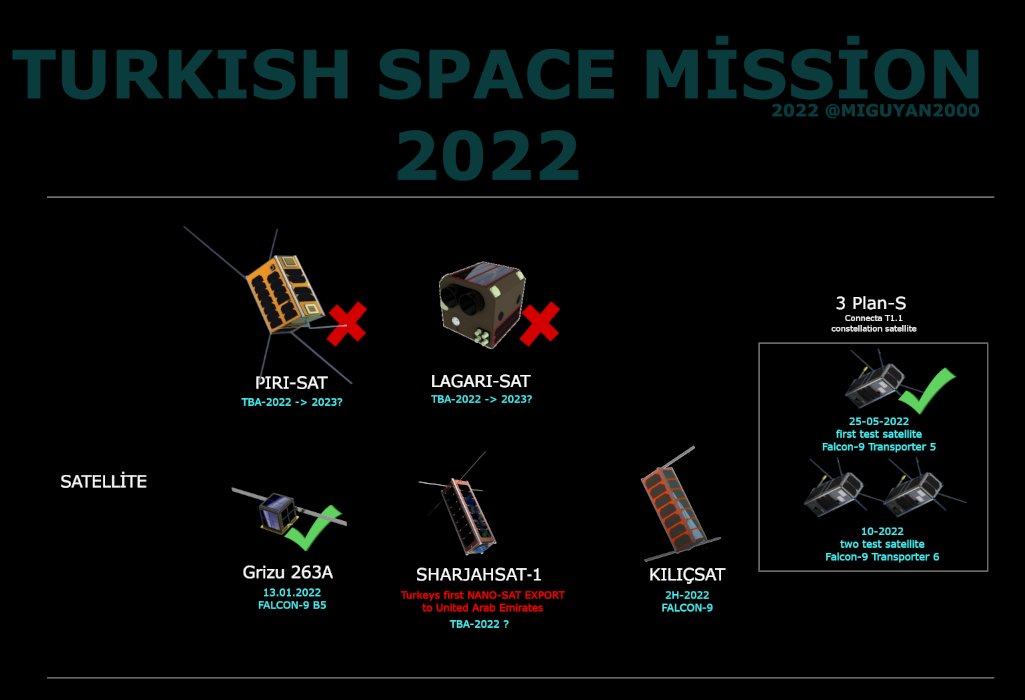dBSPL
SENIOR MEMBER

- Joined
- Mar 2, 2018
- Messages
- 7,656
- Reaction score
- 28
- Country
- Location
Turkey's first commercial satellite, Plan-S, was launched from Cape Canaveral Space Force Station in Florida with a Falcon-9 rocket as part of SpaceX's Transporter 5 mission.
In 2022, 2 more test satellites will be launched.
Speaking about his plans in 2021, Plan-S Senior Manager Tugay Güzel said, “Our satellites will be transported to space with the Falcon 9 rocket. We will build satellites in 9 months and launch 3 test satellites next year. There is no company that can send 3 satellites 1 year after its establishment. No one can even send a satellite, the fastest was able to send satellites in 2 years. When our contracts were heard, we attracted the attention of the world," he said.
In our constellation satellites, we will be able to communicate between two points with approximately 200 satellites. The team satellite concept will also be the first for Turkey. There are those who do this in the world, but this sector is a sector with a very high investment cost. We, on the other hand, do this much more cost-effectively with advanced electronic systems. We aim to be an IoT service provider, starting from Turkey and targeting primarily Central Asia, Africa and the Middle East. By producing our own satellites, we will be the solution partner of the countries as a service provider."
In 2022, 2 more test satellites will be launched.
Speaking about his plans in 2021, Plan-S Senior Manager Tugay Güzel said, “Our satellites will be transported to space with the Falcon 9 rocket. We will build satellites in 9 months and launch 3 test satellites next year. There is no company that can send 3 satellites 1 year after its establishment. No one can even send a satellite, the fastest was able to send satellites in 2 years. When our contracts were heard, we attracted the attention of the world," he said.
In our constellation satellites, we will be able to communicate between two points with approximately 200 satellites. The team satellite concept will also be the first for Turkey. There are those who do this in the world, but this sector is a sector with a very high investment cost. We, on the other hand, do this much more cost-effectively with advanced electronic systems. We aim to be an IoT service provider, starting from Turkey and targeting primarily Central Asia, Africa and the Middle East. By producing our own satellites, we will be the solution partner of the countries as a service provider."







